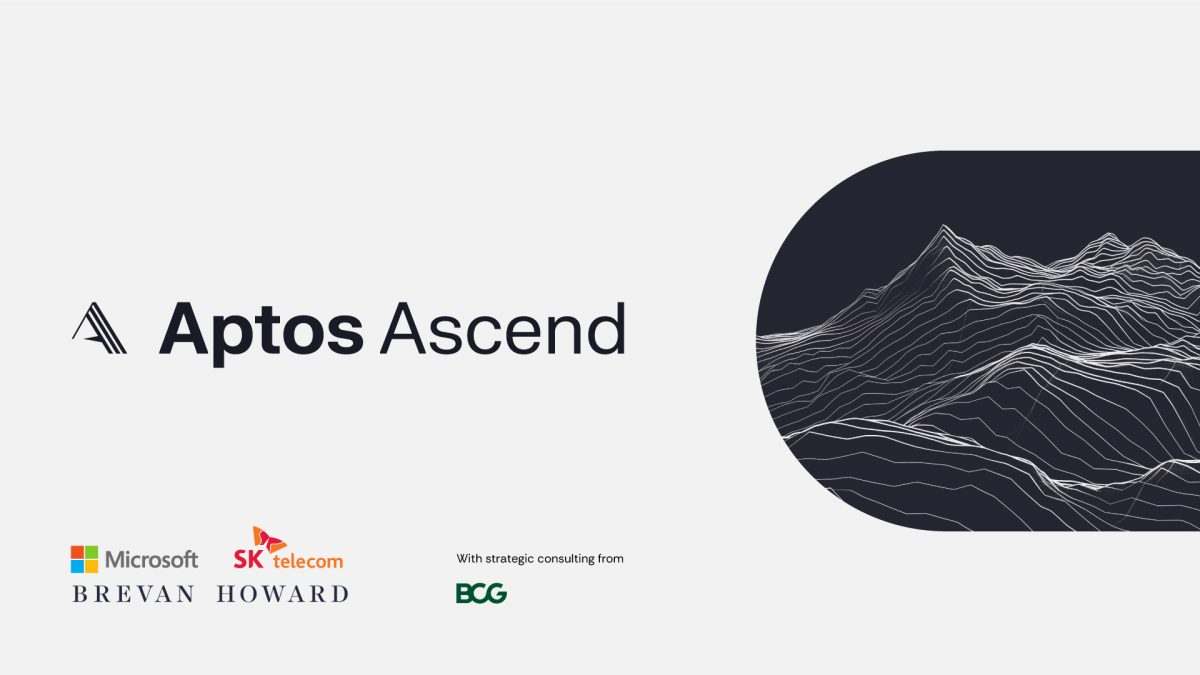Microsoft veteran joins Matter Labs to unlock 'holy grail' of web3 with zkSync

Quick Take
- Microsoft veteran Vassilis Tziokas has joined zkSync developer Matter Labs as its new enterprise lead, aiming to unlock the “holy grail” of web3.
- Tziokas was previously the global lead for web3 and AI business development at Microsoft and worked for the tech giant for nearly eight years.

Microsoft veteran Vassilis Tziokas has joined zkSync developer Matter Labs as its head of enterprise business development.
Tziokas spent nearly eight years at the tech giant, most recently as its global lead for web3 and AI business development and strategy. He wants to leverage that experience to unlock the “holy grail” of web3, attracting enterprise adoption to the space via zkSync's Ethereum Layer 2 scaling solution, he told The Block in an interview.
The motivation for Tziokas' move stems from a strong belief in an imminent wave of innovation, adoption and enterprise solutions built using blockchain technologies and he wanted to be as “close to the action” as possible.
Tziokas said he was particularly drawn to Matter Labs due to its work with zero-knowledge technology and commitment to personal freedom. He had met the team at various conferences in the past but said that reading the ZK Credo — a manifesto on the guiding principles for the emerging ZK-powered ecosystem released in June — was the moment it really “clicked” for him, and he knew he wanted to join Matter Labs.
Unlocking the 'holy grail' of web3
When asked about the future of enterprise integration with blockchain and web3 technologies, as part of Matter Labs’ mission to “decentralized access for all,” Tziokas said that bringing enterprises into web3 was the “holy grail” for the industry. Enterprises are always looking for new ways to create value but need to operate in a clear regulatory environment, he added.
“As zkSync scales Ethereum to be a highly scalable, reliable and cost-effective computing platform, it unlocks a new part of the internet to be build out — whether it's banking the unbanked, more secure enterprise systems, shared industry-specific protocols to drive efficiencies at global scale or new types of user experiences that naturally come with new computing environments — similar to what we’ve seen with the advent of the internet itself or the mainstream adoption of cloud and mobile,” Tziokas said.
Tziokas believes zkSync is the right protocol for enterprises to build innovative, secure and value-added solutions while enabling users to retain more control over their data and experiences.
“Two years ago, [Ethereum co-founder] Vitalik Buterin said ZK is the future, which resonated with enterprises as they commit to web3, especially Ethereum,” Tziokas said. “zkSync stands out because it launched the first ZK rollup over three years ago, and easily have the best ZK technology and long-term technological vision in ZK Stack.”
Last year, Matter Labs also raised $200 million to boost zkSync adoption and grow its team.
Challenges and opportunities
Tziokas acknowledged that there were still many challenges for enterprises to broadly adopt web3 technology, not just via zkSync, but among the broader blockchain industry. He named vendor fragmentation, lack of regulatory clarity and complex UX as a few but added that enterprises and tech-forward nations were increasingly looking at introducing new ZK-based services.
RELATED INDICES
More specifically, Tziokas pointed toward the recent launch of the Buenos Aires government's ZK-based digital identity solution to digitally store driving licenses, birth and marriage certificates and income verification. He also noted Walmart's venture last month into the NFT space via Pudgy Penguins, one of the top NFT collections with over $300 million in sales. The retail giant is selling 26 versions of Pudgy toys at 2,000 stores across the U.S., with Pudgy World — a multiplayer digital social platform where users can build their "Forever Pudgy" characters, play mini-games and interact with other users — built on zkSync.
Additionally, zkSync’s hyperbridging “opens up the ability for all these services to potentially collaborate and partner with one another enabling the ideal interoperability landscape — trustless, fast and cheap cross-chain transactions,” Tziokas added.
Layer 2 decentralization
Currently, Layer 2 networks introduce elements of centralization, such as relying on sequencers and provers controlled by the projects’ teams. A sequencer is a component that orders and batches multiple off-chain transactions before submitting them to the Ethereum blockchain. A prover is a mechanism that generates cryptographic proofs to validate transactions without processing them on the main chain. These create single points of failure and potential censorship risks that could have a significant impact on users of the networks.
“Decentralizing the protocol is a must,” Tziokas said. “Otherwise, how is it different from centralized cloud or container infrastructure?” While the whole Ethereum ecosystem was committed to decentralization, Tziokas continued, Matter Labs’ is “aggressively taking action to decentralize the sequencer, prover and other core parts of the technology.” It was also adding third-party developer teams to help maintain and upgrade the zkSync protocol and ZK Stack and decentralizing non-technical parts of the ecosystem like project rankings, Tziokas said.
While the process of bridging into Layer 2 networks in a decentralized way remains largely complex and expensive, Tziokas said the key to widespread crypto adoption lies in offering value-added services that genuinely enhance users' lives, again highlighting those recent project launches.
Further, “using zkSync's native account abstraction makes the game feel like an MMO, where all the blockchain tech is hidden from the user, as well as focusing on business model innovation with traditional enterprises like Walmart on their terms, as opposed to forcing them to use blockchain because it's a cool trend," he said.
“Decentralizing access for everyone will be a long journey but we are on the right track,” Tziokas added.
© 2023 The Block. All Rights Reserved. This article is provided for informational purposes only. It is not offered or intended to be used as legal, tax, investment, financial, or other advice.



